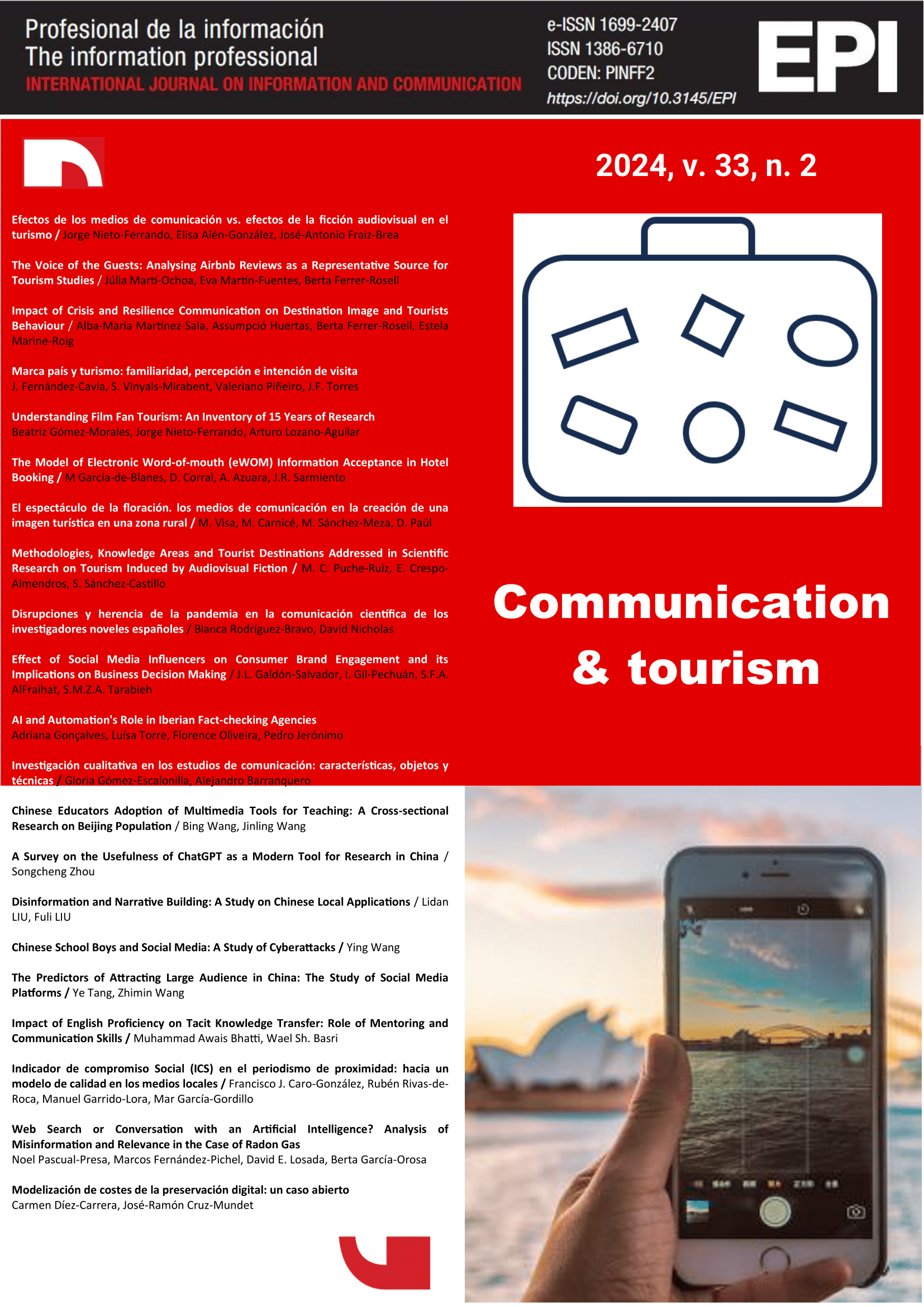Methodologies, Knowledge Areas and Tourist Destinations Addressed in Scientific Research on Tourism Induced by Audiovisual Fiction (1988-2021)
DOI:
https://doi.org/10.3145/epi.2024.0208Keywords:
Induced Tourism, Audiovisual Fiction, Systematised Review, Touristic Destinations, Methodologies, Knowledge AreasAbstract
This article analyses the methodological evolution experienced in academic research on the phenomenon of tourism induced first by the cinema and later by the audiovisual media in general during the period 1988-2021. Emphasis is placed on the methodological techniques employed and the tourist destinations considered from the perspective of marketing, communication and tourism studies. By means of a systematised analysis, 354 articles from the Scopus, WOS and Journal Citation Report databases were reviewed. The results suggest the existence of two main lines of analysis: conceptual theory (cultural geography and communication) and empirical analysis (analysis of specific products by marketing experts). Descriptive and quantitative analyses were found to be in the majority as opposed to causal and qualitative analyses. The predominance of researchers from the Anglo-Saxon and Asian spheres, who study the phenomenon of film-induced tourism within their borders, has been discovered.
Downloads
Downloads
Published
How to Cite
Issue
Section
License
Copyright (c) 2024 Profesional de la información

This work is licensed under a Creative Commons Attribution 4.0 International License.
Dissemination conditions of the articles once they are published
Authors can freely disseminate their articles on websites, social networks and repositories
However, the following conditions must be respected:
- Only the editorial version should be made public. Please do not publish preprints, postprints or proofs.
- Along with this copy, a specific mention of the publication in which the text has appeared must be included, also adding a clickable link to the URL: http://www.profesionaldelainformacion.com
- Only the final editorial version should be made public. Please do not publish preprints, postprints or proofs.
- Along with that copy, a specific mention of the publication in which the text has appeared must be included, also adding a clickable link to the URL: http://revista.profesionaldelainformacion.com
Profesional de la información journal offers the articles in open access with a Creative Commons BY license.




